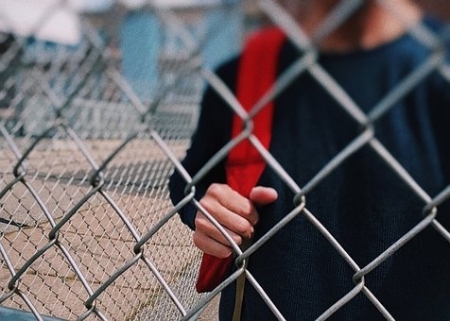How do we help those in our community that are furthest away from justice and opportunity?
We speak up, and we drive change.
Many young people in Arizona get trapped in the juvenile court system. Despite their efforts to make amends, fulfill their punishment and move on, getting their life back on track can become nearly impossible due to unnecessary barriers. This crucial point in a teenager’s life can make all the difference.
The impact of one current court practice is a particular problem: juvenile court administrative fees.
These fees are separate from punitive fines and victim restitution, and can include things that we expect to be free, such as being provided a public defender. That’s right – kids are being charged an attorney fee by the courts when they can’t afford an attorney on their own. Isn’t that the point of having a public defender system?
There are other fees, such as late fees or diversion fees (paying for an educational program to avoid jail time) which have little impact on the court’s functions, but can cause a major financial impact to low-income families.
You see, many families simply do not have the financial means to pay these fees, so they are forced into debt, which then goes to a debt collector. For the Courts research shows that they pay as much or more to the debt collection company than they ever receive in payments. And for the families, having this dept impacts their ability to do things like buy a car or rent an apartment. And if the debt has not been paid before the youth turns 18, they can’t have their record cleared for a fresh start as an adult.
Further, some youth decline representation by a public defender because they worry that the fees could cause financial strain on their families.
Clearly, the system is failing these young people.

Parents, siblings, and teachers have reached out to Stand with examples of how Juvenile Court fees can have deep negative impacts on youth and families.
Here are just a few. Note: The names in these stories appear as people requested.
Edith Fabian, a young woman from Phoenix, AZ went through this experience first-hand when her brother found himself unable to pay, leaving her and her family in financial trouble.
“Our family scrambled to get the money. We didn’t have the money immediately, but we used credit cards and borrowed money from friends.”
For Martha Laguna, mother and caretaker for her grandson talks about how the burden of fees was something she had to deal with for years.
“There were many court fees and things that needed to be paid that really left me struggling financially on top of the emotional experience we were all going through. For years, we kept getting the bills.”
Cheryl is a high School teacher in Arizona. She experienced the impact of administrative fees when she saw one of her students visibly scared at school.
“We need to help these kids turn their lives around not keep them in the darkness they were brought up in.”
You can read their whole stories here.

Although the original intent of juvenile fees may not have been to punish, we can see the damage that they create. Research shows that these fees are harmful, racially discriminatory, undermine youth success, and impose high costs on families with little benefit to communities.
Meanwhile, significant resources are spent trying to collect debt from families, resulting in any anticipated revenue going to debt collectors.
This is a lose-lose situation. It doesn’t provide revenue for the community, and it does nothing to help the child get back on track.

Stand AZ is working to fix this. In partnership with the Berkley Law Center and allies from across the state, we are proposing to end the imposition of these fees on families and ensure that all youth regardless of their zip code, race, and families’ economic position have the same access to rehabilitation options.
During the 2021 legislative session we made exceptional headway in expanding awareness of the issue and getting closer to policy change. Stand introduced HB 2385 – a bill that would help youth and their families by ending these administrative fees.

Arizonans responded in a wave of support. They sent thousands of messages to legislators, participated in days of action, and made their voices heard in stakeholder meetings and committee hearings. Here is one of our annual “Stand Day at the Capitol” events where parents met and spoke directly with state legislators on the issue of juvenile court administrative fees.
We want to thank Representatives Ben Toma, Walter Blackman, and Diego Rodriguez for working with us! We also want to take a moment to thank all of the advocates that shared their stories, sent messages to legislators, and spoke at committee hearings.
This year, we reached our goal of raising awareness, building support, and getting this bill heard in the House Criminal Justice committee. Now, Stand and our partners are committed to getting this bill passed in the 2022 legislative session.
Are you ready to join us? Sign up here to share your support and get all the updates and action alerts on this issue!





